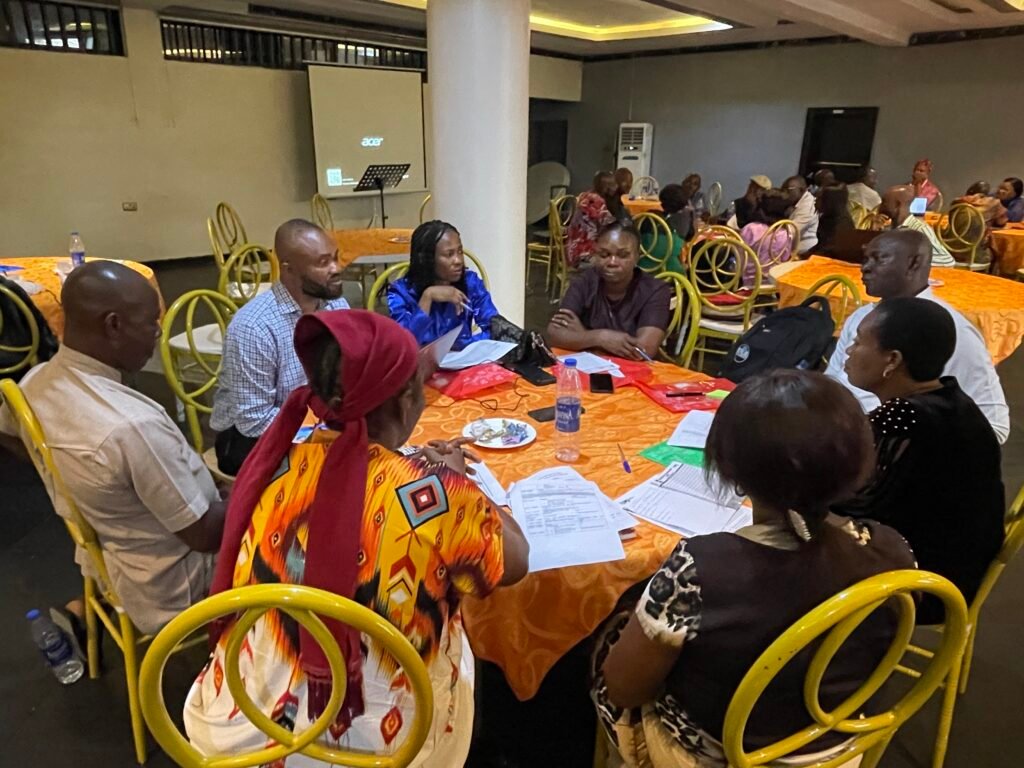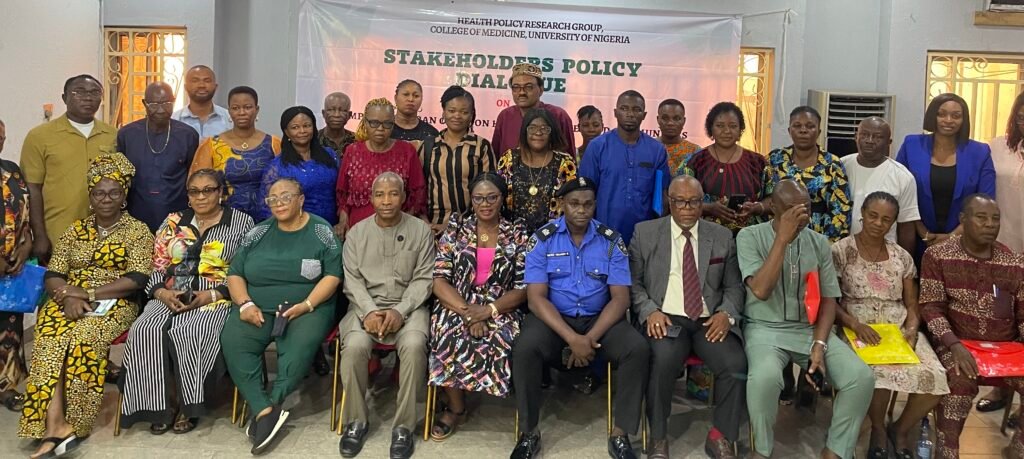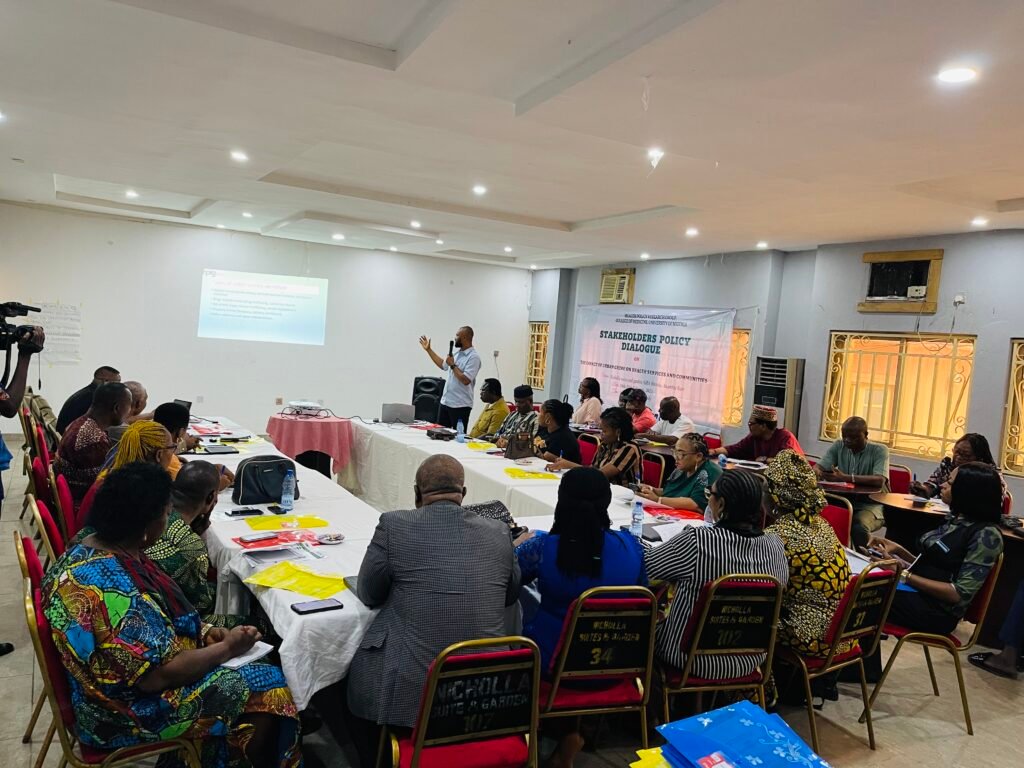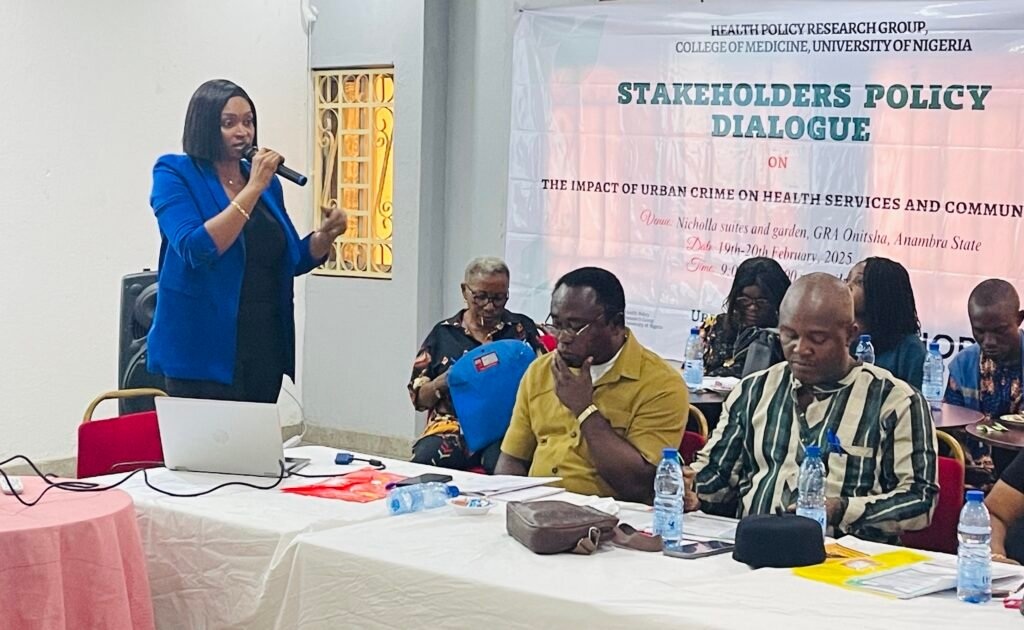“Once it is dark, we rush home […] no power supply and no streetlights […] even if you are sick, you wait till it is daybreak, than to lose your life from attacks when it is dark. Also, when there are attacks, like when we were running away from marauders, a lot of people were injured and some broke their bones. That particular day was so terrible. And because the health workers were also scared, we had no place to run to for treatment. It was very terrible” [Excerpt from an interview with Community Leader]
Nigeria is one of the top-12 countries with a high crime index, alongside nations like Haiti, Afghanistan, Venezuela, and Syria. Urbanisation has driven up crime rates due to a rapidly growing urban population of about 6% each year, competing for limited resources in a struggling economy. The rapid rise of urban slums, marked by makeshift structures and poor living conditions, has exacerbated the situation. Currently, Nigeria ranks among the top five countries globally with the largest number of urban slums. Overall, poor living conditions, economic instability, unemployment, and weak adherence to the rule of law have contributed to increased crime rates across the country, significantly constraining Nigeria’s progress in achieving Universal Health Coverage (UHC).
Increased burden of illnesses and wastage of health resources due to crime
“Yes, crime affects us. Hoodlums have looted some of our equipment. For example, when you visit the health facility laboratory, some tests may have been performed there, but we send all samples to laboratories outside the facility. Health workers refuse to sleep in the facilities. Normally, they should give twenty-four-hour services, but nobody is ready to stay in a place where you are not sure that your life is safe […]” [Excerpt from an interview with Community Leader]
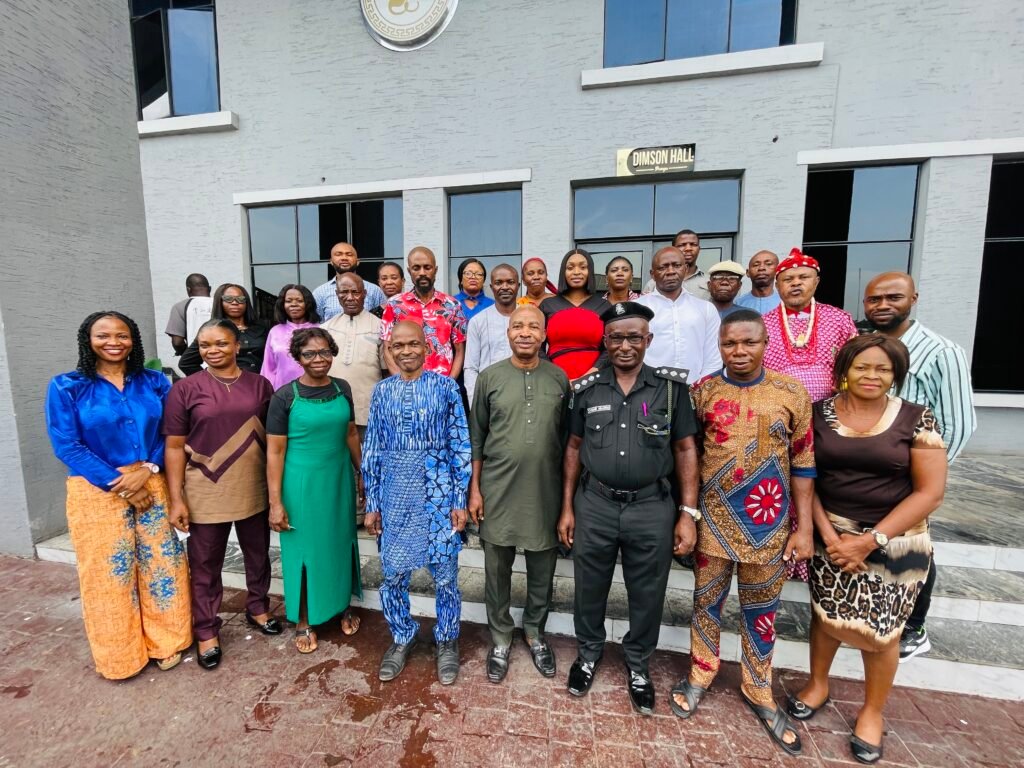
A study by the Health Policy Research Group, University of Nigeria (HPRG), under the Urban Crime and Health Project, supported by the CHORUS Urban Health Consortium (CHORUS), highlights significant waste of health resources and the strain on primary healthcare facilities caused by crime. Conducted in Aba and Onitsha, in Abia and Anambra States, respectively, the research reveals that crime-prone areas often experience blocked access to healthcare from health facilities. Furthermore, health workers often avoid work due to fears of being attacked, and there is a noticeable absence of institutional measures to address crimes that disrupt health facility operations and hinder access to health services for users.
During our visits to primary health facilities, we encountered alarming reports of health resources such as power generators, medications, electronics, beds, and more, being taken away by thieves without any intervention. We have recorded similar experiences in another state, where we witnessed an even more tragic incident, involving the abduction of a newborn, and health workers along with a pregnant patient who faced an armed robbery attack during childbirth. When residents realize that health facilities are unsafe, they are compelled to either limit their visits to daylight hours or seek alternative treatments from unregistered healthcare providers in safe spaces. Health workers, too, tend to restrict their services to daylight or avoid the facilities altogether due to safety worries.
A significant concern raised in our study is the burden of illness on the already under-resourced health facilities due to crimes. In these environments where crime is prevalent, injuries, sexual violence, emergency care, and mental health illnesses become far too common. We observed that the health facilities were mainly understaffed; therefore, attending to these repeated occurrences of illnesses and injuries was a considerable amount of work. Additionally, health workers were unable to care for injuries and illnesses when health facilities were locked at dusk or when the environment was tense due to crime. It is equally concerning that the health workers lacked training to respond to such situations, leading to scare and denial of care to some patients in critical conditions suspected of crime involvement. Health workers also lacked training in trauma-informed care, leading to inadequate care for traumatized patients.
Stakeholders push for solutions
In March and April 2025, stakeholders from the Nigerian Police Force (NPF), Nigeria Security & Civil Defence Corps (NSCDC), health and justice ministry policymakers, community leaders, and frontline healthcare providers were invited to a dialogue. The focus of the dialogue was to examine the findings from our research and provide critical solutions. We employed scientific processes, such as the SWOT analysis approach and Modified Delphi Process, to elicit and make sense of the identified and discussed solutions to the issues primary health facilities face due to various crimes. A consensus was reached on the following actions encompassing:
- Institutional response to crimes affecting demand and supply sides of health services: A security agenda for health facilities has become paramount. Security agencies and health policymakers must collaborate to develop a framework that ensures the safety of health facilities and their surrounding communities. Additionally, both sectors must develop clear policies, legislation, and guidelines to protect health facilities and health service delivery during times of crisis.
- Enforcing minimum standards for the security of primary health facilities: Nigeria has established minimum standards for primary healthcare that include the security of health facilities. According to these standards, primary health centres must be fenced, adequately illuminated, and staffed with at least two security personnel. It is crucial that these provisions are enforced unconditionally and reconsidered in light of the current insecurity issues in Nigeria. The power supply issue demands urgent attention. Health facilities can rely either on subsidized electricity tariffs or alternative power sources. The evening hours pose significant risks for healthcare workers in urban areas, making adequate lighting essential for delivering health services during dusk.
- Community education and awareness: It is essential to educate community members and healthcare workers about crime detection and reporting procedures. Policies on these issues should be clearly communicated through local authorities and schools. Additionally, primary healthcare-level workers should receive training on crime response mechanisms, which encompass treatment protocols for crime suspects as well as trauma-informed care for victims.
- Utilizing local security resources: By law, the Nigeria Security & Civil Defence Corps (NSCDC) should oversee the safety of government installations, complementing the roles of securing lives and properties provided by the Nigerian Police Force. We understand the human resource issues could be a challenge, which is why community policing can be an option, through the use of vigilantes. Also, there is an opportunity for such local resourcing to be factored into the Basic Health Care Provision Fund (BHCPF), especially for facilities operating in high-risk neighbourhoods, such as urban slums.
Conclusion
The persistent danger of crime targeting primary healthcare facilities, particularly in high-risk urban areas, presents not just a security issue but also hinders health equity, service delivery, and overall national development. When healthcare workers leave facilities, equipment is stolen, and patients feel fearful, having to choose between their safety and health, the objectives of Universal Health Coverage (UHC), including the Nigeria Health Sector Renewal Investment Initiative (NHSRII), are deeply impacted. The remedies lie in the evidence-based strategies we have proposed, which include establishing and enforcing a security agenda for primary health centres, enforcing essential primary healthcare security standards, offering security education and responsive strategies to communities and healthcare workers, and utilising local security resources. Nigeria cannot achieve its national, regional, and global health objectives while healthcare providers and service users remain at risk of criminal activities.
Authors Bio
Dr. Pamela Adaobi Ogbozor is the project manager of the Urban Crime and Health Project and a researcher with the Health Policy Research Group, University of Nigeria. She is a Lecturer at the Psychology Department, Enugu State University of Science and Technology, and holds a Ph.D. in Organisational and Occupational Health Psychology.
Dr. Charles Tochukwu Orjiakor is the Principal Investigator of the Urban Crime and Health project. He is a Senior Lecturer at the Psychology Department, University of Nigeria, Nsukka. He is also a Postdoctoral Fellow at the University of Toronto, Canada.
Ethelbert C. Agu is a Ph.D candidate in Experimental Psychology at the University of Nigeria and a research associate at the Health Policy Research Group. His research interests include public health research, cognitive development of institutionalised children, and cognitive ageing.
John E. Eze is a Professor of Clinical Psychology with the Department of Psychology, University of Nigeria, Nsukka. He is interested in substance use, mental health sequelae and intervention, youth gangs, and peace and conflict resolution. He has served as editor for reputable journals and books.
Obinna Onwujekwe is a Professor of Health Economics, Policy and Pharmacoeconomics in the College of Medicine, University of Nigeria. He is the Coordinator of the Health Policy Research Group, University Of Nigeria, Enugu Campus.
Acknowledgement
We are grateful to all our partners and stakeholders for their contributions to the project. And we also appreciate Dr Prince Agwu for reviewing the article.
Photos
